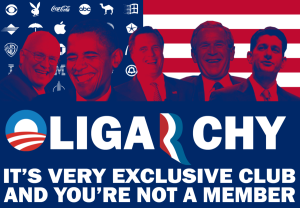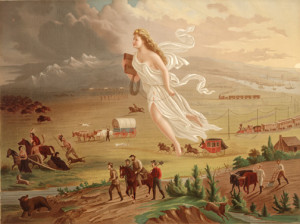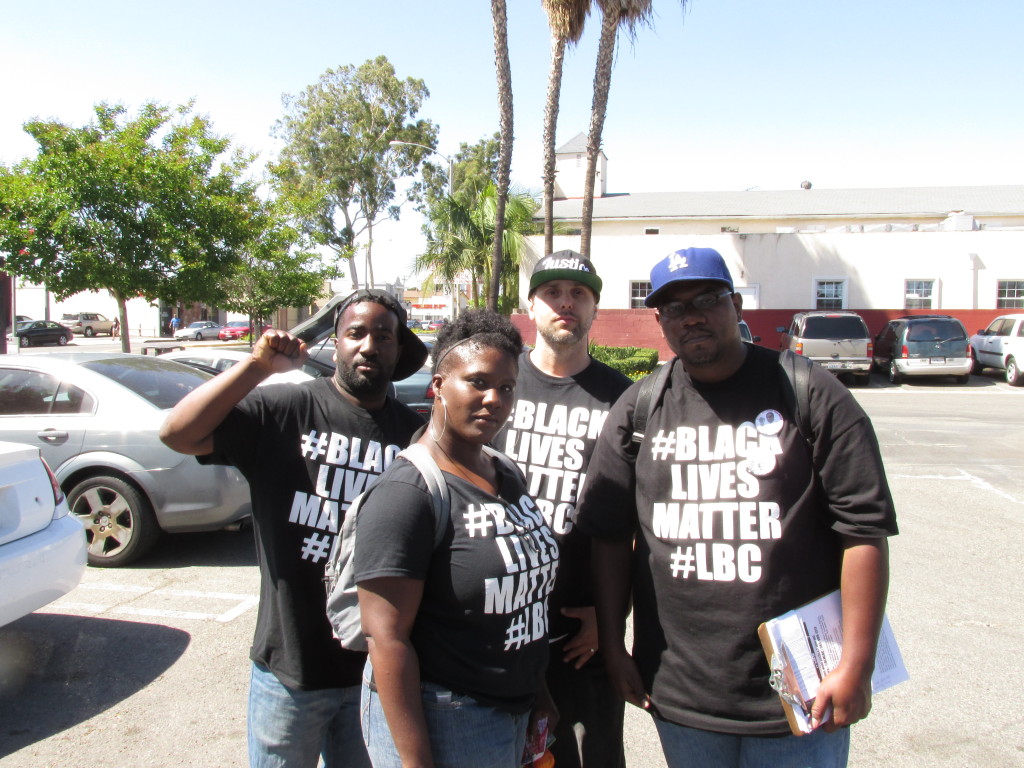DEFINITIONS CRUMBLING: Our Failed Revolutionary Regime, a Political Revival, & the Rise of Civil Society
A now widely known 2014 political science survey out of Princeton University analyzed which political actors have influence on over 1,700 specific policy issues. From this dry academia comes the gut punch: the U.S. governmental system can no longer be defined as a DEMOCRACY, and can now be properly defined as an OLIGARCHY. From the survey’s summary: “Multivariate analysis indicates that economic elites and organized groups representing business interests have substantial independent impacts on U.S. government policy, while average citizens and mass-based interest groups have little or no independent influence.”[1]
 Before anyone can voice the common response to this revelation–(a witheringly uninformed, “I’m not surprised.”)–it’s worthy to note that I’m not surprised that you’re not surprised. Why? Because U.S. politics have been essentially dead and hardline conformist since, at the very latest and most definitive date, the 1980s. The reasons for our total and abject indifference toward blatantly glaring problems has been deconstructed and theorized into oblivion, and standard interpretations are: economy of outrageous excess abundance, opiating entertainments, and recognition of the lack of political influence itself. Another interpretation, that gets far less analysis, is the effect of enforced ideological purity.
Before anyone can voice the common response to this revelation–(a witheringly uninformed, “I’m not surprised.”)–it’s worthy to note that I’m not surprised that you’re not surprised. Why? Because U.S. politics have been essentially dead and hardline conformist since, at the very latest and most definitive date, the 1980s. The reasons for our total and abject indifference toward blatantly glaring problems has been deconstructed and theorized into oblivion, and standard interpretations are: economy of outrageous excess abundance, opiating entertainments, and recognition of the lack of political influence itself. Another interpretation, that gets far less analysis, is the effect of enforced ideological purity.
If Stalin-controlled USSR was the Red State, then we must be the conservative-controlled White State, and in more ways than one. What the U.S. is experiencing, in the late-20th and early-21st centuries, are the imminent consequences of an unfettered capitalist hegemony, taken to its logical and most existential conclusions: Total world environmental degradation. Massive global humanitarian repression, the conversion of entire countries into economically-indentured servants, and worldwide white supremacy.

We need to wake up and see our two-party system for what it really is: A mono-political failed revolutionary regime, controlled by–like the name suggests–oligarchs and political dynasties.
Part of what makes our paper democracy so psychologically convincing is the daily functioning of free speech–constantly under threat and in various stages of erosion. Nuances aside, freedom of speech in the U.S. is an incredibly strong political precept. Its admirable achievement is freedom of thought. Its downside: that same freedom of thought is overwhelmingly imprisoned by the narrow parameters of the capitalist regime. From Manufacturing Consent: The Political Economy of the Mass Media, by Noam Chomsky and Edward S. Herman:
“These structural factors that dominate media…are not all-controlling and do not always produce simple and homogenous results. It is well recognized…that the various parts of media organizations have some limited autonomy, that individual and professional values influence media work…and that media policy itself may allow some measure of dissent…The beauty of the system, however, is that such dissent and inconvenient information are kept within bounds and at the margins, so that while their presence shows that the system is not monolithic, they are not large enough to interfere unduly with the domination of the official agenda.” [2]
Which is another way of saying: Yes, the system is monolithic, but is adept at giving the impression that it’s not.
The idea that our governmental will come to some eerie and outspoken moment of self-recognition and progressive transformation is, of course, foregone. Take, for instance, Jon Stewart’s recent monologue about the Charleston church shooting, in which he stated, “I honestly have nothing other than just sadness once again that we have to peer into the abyss of the depraved violence that we do to each other and the nexus of a just gaping racial wound that will not heal, yet we pretend doesn’t exist. And I’m confident, though, that by acknowledging it, by staring into that and seeing it for what it is, we still won’t do jack shit. Yeah. That’s us.” [3]
And we agree, right? On the other hand–there seems to be a political revival taking place right now in U.S. culture, one that is decidedly not from above, but from below. One that is being fueled by the late-in-coming “revelations” of our martial and repressive police state, as well as the quickening consolidation of environmental opinion. What’s noteworthy about both these movements is that they take U.S. government inaction as an absolute given. Essentially, they view the government as the opposition, something to be overtaken by force of demonstration and legal cunning.
Thus, the vanguard of radical politics at this moment is Black Lives Matter, Greenpeace, Fight for 15 and other low-wage movements, and the shadowy ghost of Occupy looming in the background, hoping for resurrection. These organizations are, for the time being, acting as a sort of mainstream civil society in the sense that their concerns and agendas are no longer on the fringes, but actually toward the center of major debate. They are enjoying broad support from most progressive thinkers, activists and journalists.
This trend is reminiscent of the strong notion of civil society throughout Latin America, which began in the 20th century, borne out of the intense, fatalistic attitudes toward corrupt, ineffective or hostile state powers. We are starting to recognize, for the first time in a long time, that our political salvation isn’t going to take place in the presidential arena, nor through other powerful individual politicians, no matter how (seemingly) idealistic. It’s going to take place on the street. It’s going to take place through direct confrontation. And it’s going to take place through massive civil organization. In this way we can gain the political solidarity needed to fragment the two-party system, and redirect ourselves back to majoritarian policy-making and civilian oversight.

But now for the inevitable caveats.
First, this rise of civil society (perhaps more precisely civil protest society) is only showing promise of gaining greater momentum, and is not yet a fully entrenched entity. Faced with a rapidly approaching administration change next year, there is the hope to see greater numbers of people becoming politicized, and the equal hope that they will politicize on the streets, rather than in the field offices of mainstream candidates. Many more people are still needed.
Second–and this will basically be the point of this article–there are identifiable, exploitable weaknesses in this so-called civil society movement. The most concerning weakness is the lack of adhesion between these multi-pronged, but essentially parallel, organizations. Understandably, there is not always overlap between the concerns of environmentalists, civil rights activists, labor groups and societal emancipationists—but there’s a hell of a lot more overlap than you might think. Admittedly, there is no simple roadmap for the cohesion of separate civil interest groups. But–what is simple to see–without alliance or melding of issues, progressives of all stripe will remain divided and disempowered.
The idea of a coalition between such massive organizations with such strong individual identities is an ambitious, even intimidating one, and would require a huge amount of improvisation and creative thinking. But for the sake of simplicity, let’s set aside the question of how. Suffice it to say, this is not suggesting there should be hardline inter-organizational agreement. In fact, there should and will be disagreements. But for those of us already active in major protest movements, we need to search for and take advantage of where our interests align, and attempt to bridge the gaps on the local level. We need to desperately seek out the synergy of our spirits, and fuck what the cynical establishment might predict of it. Remember, they’re not going to do jack shit anyway.
The question remains, even for the movements in their current, atomized form: will we actually put our feet to pavement? Will we actually step outside our doors? Or will we remember our generation and period of history through the hazy, opiating, uninspiring lens of Netflix, iPhones, Facebook and fearful corporate conformity?
[1] Gilens, Martin, & Page, Benjamin I. (2014). Testing Theories of American Politics: Elites, Interest Groups, and Average Citizens. Perspectives on Politics, Vol 17 (Issue 03), pp 564-581.
[2] Chomsky, Noam, & Herman, Edward S. (1988) Manufacturing Consent: The Political Economy of the Mass Media. New York, New York: Pantheon Books.
[3] Yahr, Emily. (2015, June 19). Read Jon Stewart’s blistering monologue about race, terrorism and gun violence after Charleston church massacre. Washingtonpost.com.

